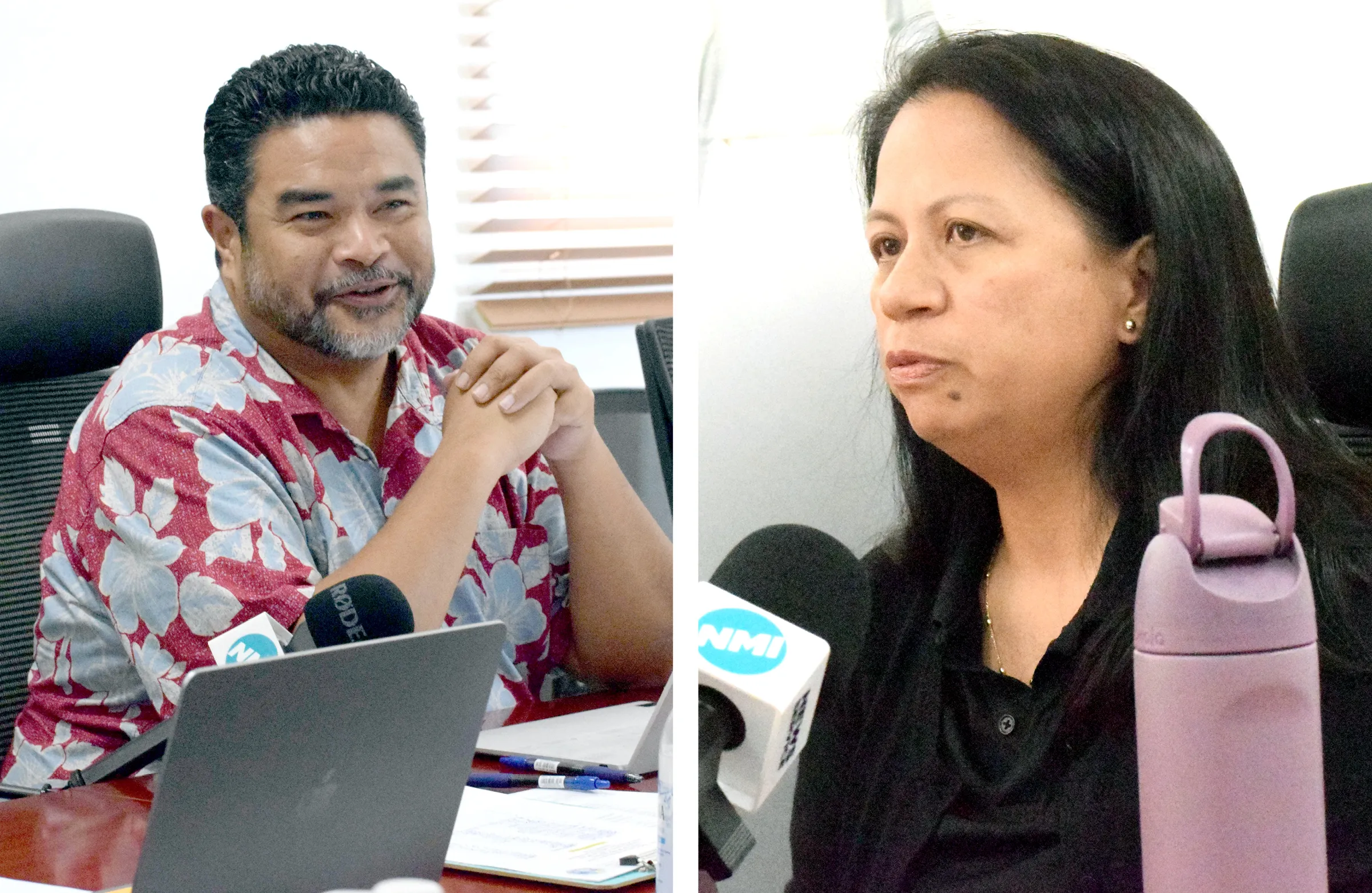Pass the tissue, please
“To get ourselves back to fiscal stability, we must do so by exercising fiscal discipline…. The time to live within our means has truly come.”
— Gov. Arnold I. Palacios, inaugural address, Jan. 9, 2023
IF, as the administration claims, the CNMI government’s goal is to reduce costs why are its entities and agencies saying they need more money?
During last year’s budget hearing, the then-DCCA secretary told lawmakers, “[H]onestly, I’m very depressed coming here. I want to cry because what am I defending? Zero,” referring to her department’s “inadequate” budget. After just six months in her position, she resigned due to health reasons.
The new administration and its legislative allies had an entire year to pass major legislation that could help improve the islands’ dismal economic climate, “raise revenue” or consolidate at least some duplicative departments or agencies. But no. Somehow, the InDems fumbled their razor-thin majority in the Senate, and just like that, they have squandered their hard-won mandate. This is tantamount to political malpractice. All newly sworn in administrations have managed to enact significant legislation in their first year in office. But not this one.
The governor, in any case, knows exactly what the problem is — why the economy is still down and why, consequently, the government is still not collecting enough revenue. “The China market is a significant market for [our] tourism industry,” he told Voice of America early this year. The lost income from the Chinese tourism market is “very significant,” he added. “We’ve had to make drastic sacrifices in government operations and public services. People are leaving the Commonwealth because of the depressed state of the economy right now, because of the major impact of losing close to half-a-billion to a billion dollars’ worth of economic activities.”
And his “solution”?
Beg for more federal alms and raise taxes.
How’s that working out so far?
THE administration, alas, appears to have no interest in boosting tourist arrivals if it means reviving what used to be the CNMI’s second largest market, China. OK then. However, the governor also expects taxpayers to pay for the consequences of his “pivot” policy — a policy he implemented without consulting the public, the business community or even economists.
As a local economist pointed out recently, tourism in the CNMI “is really big.” Based on official figures, 54% of customers in the CNMI were tourists. Households accounted for 15% of the total number; construction contractors, 4%; the CNMI government, 4%; the federal government, 1%; and all other classes of customers, 22%.
Almost a year ago, the Saipan Chamber of Commerce reminded CNMI’s top officials about “the difference between tourism spending and government spending, such as those provided through federal grants. When a visitor chooses to spend his or her dollars it can go to a range of businesses across sectors — services, restaurants, hotels, amusements, etc. These components of the visitor’s expenditure rely on each other for revenue and resources to support employment. Thousands of local residents have built experience and careers within these fields. Turning off the source of revenue that provides for these businesses and individuals is not replaced by government spending which finds itself largely within the construction and professional services industries. [T]he injection of resources in these sectors, while certainly a beneficial component to our economy, resides within sectors predominated by outside firms or within sectors with the largest dependency on foreign labor.” (Our italics.)
Instead of raising taxes cut your spending
ON Tuesday, Department of Finance officials appeared in a budget hearing conducted by the Senate Fiscal Affairs Committee. After saying that recovery is “slow,” and “it’s still a challenge,” the Finance secretary said she believes the government is still “within the budget” in terms of spending.
What does she mean exactly? The governor has said that the current budget must be supplemented by tax hikes, which the Senate, to its eternal credit, has yet to pass. The government also failed to meet its revenue projections in the first, second and third quarters of the current fiscal year. “We are not seeing too much collections,” the Finance secretary said.
But the government is still “within the budget”?
For her part, the acting Rev & Tax director said they need to hire more personnel to “help…the government bring in what we need.”
Here’s a better and more mathematically reasonable idea: cut government costs so you won’t need to take more money from taxpayers. Thanks to “pivot,” the local economy can no longer afford a government with so many duplicative departments, agencies and programs.
Tourism numbers, as everyone knows, are still down compared to pre-pandemic levels. Hotel occupancy rates are nowhere near break-even numbers. Businesses are cutting hours, laying off people or shutting down. And this administration wants taxpayers to pay more because its legislative allies cannot pass cost-cutting measures in an election year.









